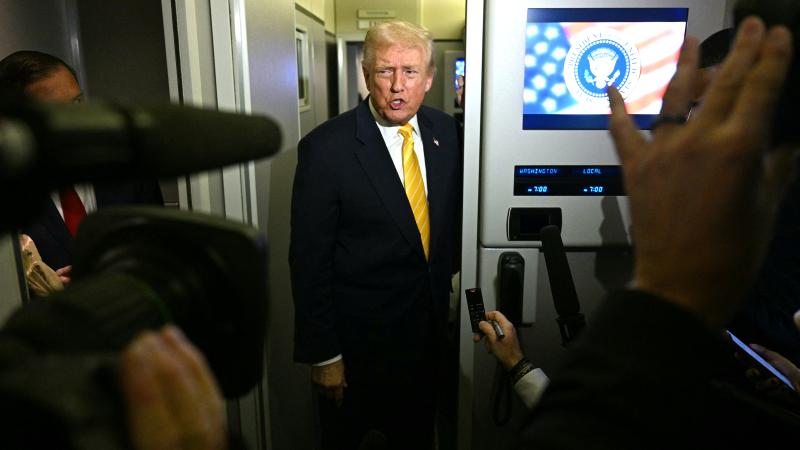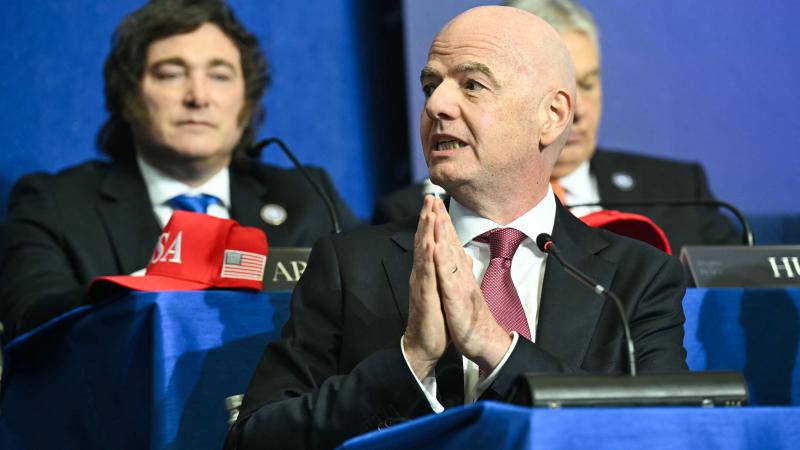List: Times conservative Supreme Court Judge Neil Gorsuch sided with liberal counterparts
Donald Trump’s first appointee to the U.S. Supreme Court shocked the nation this week when he sided with the liberal majority in a LGBTQ workplace rights case
Supreme Court Justice Neil Gorsuch, Donald Trump’s first appointee to the U.S. Supreme Court, shocked the nation this week when he sided with the liberal majority in a case regarding employment discrimination against people who identify with the LGBTQ community.
Gorsuch delivered an opinion Monday tin a 6-3 ruling that gave federal civil rights protections for gay, lesbian and transgender workers. It was a stunning defeat for judicial conservatives and Republicans who worked to ensure Gorsuch's nomination.
However, this is not the first time Gorsuch has dissented from his conservative counterparts. Here are a few examples since his appointment in 2017 by the president.
Sessions v. Dimaya April 17, 2018: Gorsuch ruled an immigration law “unconstitutional,” making it more difficult to deport a small number of lawful permanent residents convicted of crimes. James Dimaya, a Philippine native and legal permanent resident of the U.S., was convicted of two felonies and labeled an “aggravated felon.” He was going to be deported, but Gorsuch, along with the more liberal judges on the Supreme Court, found the law to be unconstitutional.
Virginia House of Delegates v. Bethune-Hill June 17, 2019: Gorsuch, along with the liberal majority, rejected an appeal by the Republican-led Virginia House of Delegates, requiring the redrawing of 11 state legislative districts. After the 2010 census, Virginia redrew its district lines. Some voters sued the state for gerrymandering and a district court ruled that 11 districts were the product of unconstitutional racial gerrymandering. The Supreme Court, in a 5-4 decision, dismissed the House of Delegates’ appeal.
United States v. Davis June 24, 2019: Gorsuch sided with the four liberal Justices in striking down stiff firearm penalties as unconstitutionally vague. The 5-4 ruling involved Maurice Davis and Andre Glover who were charged with armed robbery. Because of their use of firearms during their “crime of violence,” an Arkansas law enhanced their charges. The 5-4 ruling invalidated the firearms convictions.
United States v. Haymond June 26, 2019: Gorsuch sided with the liberal majority in a case involving child pornography and the right of a trial by jury. Haymond, who had spent previous prison time for possessing child pornography, was caught a second time with illicit pictures of children. He was denied a jury and given an additional prison sentence. Gorsuch criticised efforts to skirt the Constitution by empowering judges to imprison sex offenders without the safeguard of a jury.
Herrera v Wyoming May 20, 2019: Gorsuch, who is from Colorado, ruled with his liberal counterparts in favor of Native American rights in a Wyoming hunting case. Clayvin Herrera, a member of the Crow tribe, was charged with off-season hunting in Wyoming. He claimed to be protected by a 19th-century treaty. Gorsuch held that hunting rights for the Crow tribe the treaty did not expire when Wyoming became a state.














